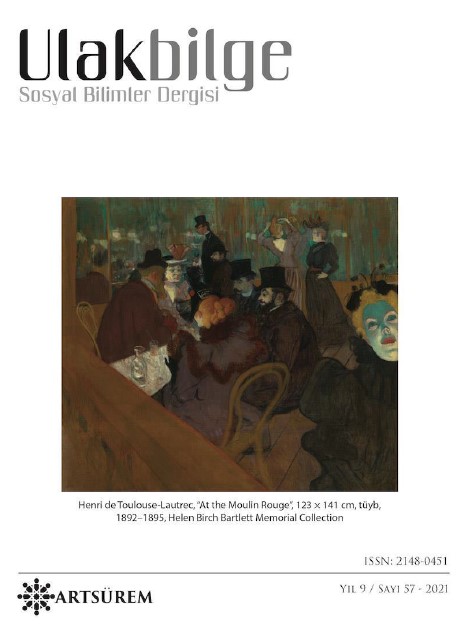ÇOCUKLUKTAN YETİŞKİNLİĞE BABA KAVRAMI
A PROTOTYPE ANALYSİS OF FATHER (EVERY AGE)
Author(s): Emine Durmuş, Ezgi Sumbas, Rüstem Göktürk HAYLI, Ramazan ÇOKSubject(s): Developmental Psychology, Family and social welfare
Published by: Sanat ve Dil Araştırmaları Enstitüsü
Keywords: Father; developmental stages; family; prototype analysis;
Summary/Abstract: The concept of “father”, which has an important role in the family and parents child relationship, has been the subject of many science fields in historical periods. The aim of the study is to reveal the perceptions of the concept of "father" in different developmental stages. In this research, what the concept of father means according to the age periods was determined by the prototype analysis method. The research was carried out in a qualitative pattern. 241 participants including primary school (40), middle school (40), high school (40), university (40), young adulthood (40), middle age (40) were included in the research. Participants were asked what meant of father to them in a form where expressing a concept was embodied with the example and asked what the meaning of the father meant. “Prototype Analysis Method” was used to analyze the obtained data. The definitions related to the father are classified according to gender and developmental stages in the form of frequencies, and their percentages are listed from the most repeated to the least repeated and shown in a table. During the primary school, paticipants define fathers as love, meeting financial needs, compassion, anger, respect; The participants in the middle school period defined the head of the household, love, happiness, money, altruist. Participants in the high school period defined the father as a protector, the head of the household, love, support, and the university period as a protector, support, source of happiness, trust, sacrifice. Participants in young adulthood define fathers; trust, protector, authority, self-sacrificing, guiding; middle age participants define fathers; such as support, head of the household,, protector, love, authority. According to the results of the study, the father is mostly symbolized as an element of love in primary school, the other in the house in the middle school period, the person who keeps the house in high school, a protector in the university, the person who gives confidence in the young adulthood and the support person in the last middle age period. This result shows that perceptions and references to the father differ according to age and time.
Journal: Ulakbilge Sosyal Bilimler Dergisi
- Issue Year: 9/2021
- Issue No: 57
- Page Range: 174-192
- Page Count: 19
- Language: Turkish

